A unique approach to biopharmaceutical formulation development
Leukocare uses best-in-class technologies to break new ground in this area
June 2022
© IZB
Interview with Michael Scholl, CEO of Leukocare AG
Michael Scholl co-founded Leukocare in 2003 along with Prof. Martin Scholz. An industrial engineer by training, he turned the company developing biofunctionalized devices into a successful service provider for formulation development. Today, the company is growing rapidly and is considered the leader in providing clients with a holistic bioinformatics approach to formulation development. Leukocare combines expert knowledge of biopharmaceutical formulation development with cutting-edge bioinformatics and biostatistics to best tailor the formulation to the drug product’s needs and accelerate the formulation development process. We have spoken with Michael about corporate growth at the Munich Innovation and Start-up Center for Biotechnology (IZB) and the importance of seizing opportunities.
Mr. Scholl, you moved Leukocare to larger premises in the IZB last year. What does this move mean for you?
The move was an important step for us. Leukocare has experienced a major growth, particularly over the past three years we have tripled the number of employees from 30 to over 90, still further growing. In addition, there was the corona pandemic, where you would want to avoid a too high density of employees on your site. So, we either had to move into larger premises at the IZB or leave the campus, which we did not want. We really enjoy this inspiring location and collaborating with other companies in the industry, which are in the direct vicinity. The move gave us the opportunity to stay in this great neighborhood and at the same time accommodate the growth of the company.
What milestones have you achieved since you moved into the IZB in 2010?
There are a number of milestones, but the most important one is that we turned the company around 180 degrees strategically. When we first came to Martinsried in 2010, Leukocare was still a product development company. In the course of that product development, we developed a technology platform and then strategically shifted the company towards a technology and service provider in the field of stabilization of biologics in general and formulation development of biopharmaceuticals in particular. Following this transition, we developed the technology in more detail and built a broader patent portfolio. Other important milestones were our strategic alliances with Rentschler Biopharma and Xellia ApS, which helped us leverage our technologies, and the establishment of a U.S. entity with fully fledged development labs in the Boston area last year.
You are a specialist in biopharmaceutical formulations. How do you explain to someone who has no idea about biotechnology what that is and how it benefits society?
To get medicines to patients, they have to be transported long distances, doctors or pharmacists need to store them, and they have to be able to administer them to patients. Especially with biopharmaceuticals, this can be tricky. The biopharmaceutical drug product consists of the drug substance – the actual active ingredient – plus some excipients that stabilize this drug substance and allow it to be stored and administered over a longer period of time. Leukocare is able to combine these little ingredients in different recipes for our clients, achieving stability and transportability to ensure there are no issues along the logistic chain. So that’s what we’re doing: We stabilize a drug substance and make it administrable to patients in an appropriate way. We can also give an example: A client came to us with an adenovirus that was “fine and more or less stable” after 12 months, but lost 99 per cent activity (efficacy) with the existing formulation. We were able to improve the formulation so that it was stable for at least 24 months. This provided an additional benefit to the customer. At the end doing formulation development right can bring new therapies to patients in need faster (and/or easier and/or cheaper) – a clear benefit for the society.
Why is the topic of formulation so important?
Formulation is an essential prerequisite for turning a drug substance into a drug product. A pure drug substance is not yet a product, it’s just one element of it, and without a suitable formulation this product will suffer from issues either during clinical development or at the latest during commercialization. It’s never too early to start thinking about the formulation. Once you have a target product profile in mind describing the design of the final product, this has an impact on formulation. The earlier one considers this formulation, the easier it is to de-risk the clinical development and to really come up with the best formulation according to the target product profile. A suitable formulation gives many competitive advantages to every product, e.g., a simpler supply chain or convenience in administration for physicians and patients. If formulation development is not done properly a potentially powerful drug which could have helped many patients might fail in development, e.g. because the active component is not stable and active anymore when administered to the patient.
What does Leukocare do differently than its competitors?
Leukocare has a unique approach to combining these ingredients, so-called excipients. You don’t just throw one or two of them in, you have to combine them in a fairly complex way to specifically target the hotspots of your molecule that acts as a drug. Instead of high-throughput screening, which requires a lot of time, material, and cost, we apply biostatistical and bioinformatics approaches that allow us to determine the best tailored formulation in the shortest amount of time and with the least amount of drug substance. We have a bioinformatics department, and an important part of our development is that we transfer work from the wet lab into in-silico, e.g. by applying Design of Experiment (DoE) approach. This allows us to cover the broadest possible design space, to consider way more combinations of excipients than would classically be possible resulting in better formulations.
You mentioned the strategic alliance you entered with Rentschler Biopharma five years ago as one of your major milestones. What synergies result from this partnership?
Our partner Rentschler Biopharma is focusing on drug substance manufacturing under GMP processes and respective process development. Every client that approaches Rentschler, by definition, also needs a formulation to transfer this drug substance into a drug product. And this is the interface that Leukocare can provide. So, with this alliance and co-marketing partnership, we integrate all formulation development directly into the project and process management of Rentschler, and by this we can de-risk and speed-up the programs of Rentschler clients. We can link the different development steps more precisely, start our formulation development before Rentschler has finished its drug substance development, and by this not only save a few months in the development but also increase quality because we have information going back and forth. So, it’s an intense give and take between the partners, all to the benefit of the joint clients.
In June 2021, you announced financing with Petrichor to expand your presence in the US. How has the Milford business taken off and what particularities are you observing at the new location?
We launched the site at the end of last year and are currently in the ramping up phase. We underestimated how long recruiting would take and setting up a new site during the corona pandemic was not always easy. We are very happy that it all worked out at the end and that we now have a great team in our facility ready to serve our US clients. We’ve already learned that the market is enormous. There is a huge potential for clients in the U.S. in general and in the Greater Boston area in particular. Our assumption that we can best serve our U.S. clients with having a footprint on the territory, with little or no time difference, has already proven to be correct.
Given the increasing demand for well-trained personnel, how do you manage to attract the best employees to Leukocare and keep them?
In the Boston area, Leukocare is obviously not an employer brand that shines on its own. We have to attract people that probably have never heard about us, and that doesn’t make it easier. On the other hand, we’re learning that people seem to like German companies because there’s a different attitude here, no hire-and-fire mentality. We tell people that with us they get a long-term, trust-based, employer-employee relationship. In Germany, the situation is not as tense as in the U.S., and Munich in particular is a good place to hire, but still attracting the right people is key. We need not only good scientists, but also the right mindset. The people who work on our projects, who are customer-oriented, think outside the box and make the client happy, are our biggest asset. We are constantly working on our recruiting process and doing our best to keep our employees happy, which isn’t just about salary. It’s about our corporate culture, transparency, the way we interact with each other, how we empower our employees and foster ownership. And I think we do quite well in that respect.
Apparently, you also do quite well in keeping your investors happy, aren’t you?
Yes, we have had investors from day one who have supported our strategic shift. They invested in a company clinically developing a medical device and eventually ended up with a company developing formulations as a service. And they are still happy. These investors are long-term oriented and very loyal. Operationally, our company is profitable. But as I mentioned, last year we brought a new investor on board, Petrichor, a U.S. based private equity fund. That was a very important step for us because we wanted to increase our footprint in the U.S. in every possible way, so strengthen the client base there, our development activities and physical footprint, but also strengthen the U.S. market in our cap table. Petrichor is very supportive, they strongly believe in our business model, and they will also support our further growth strategy.
Talking about growth, what would you like to achieve with Leukocare?
Our vision for the company is to become one of the leading drug product development service providers, which means that a client can approach Leukocare with the drug substance and the client will get a drug product back – and everything in between is handled by Leukocare or Leukocare’s strategic partners. Turning an active ingredient into a drug product includes formulation development, of course, but also analytics, stability and robustness studies, as well as process development. Our Bioinformatics-based approach will support all of this, including the development of new services such as molecular modelling, which we offer our customers to shorten development times and improve the quality of development. We also broaden our product offering from the above-mentioned fully-fledged development to include early formulation assessment to later formulation robustness testing and formulation optimization, thus offering the customers different options based on their developmental needs, timeline and budget.
When you think back to the start of your professional career, what do you wish you had known back then? What advice would you like to give to younger entrepreneurs?
I could write a book about what I wish I had known. When I started in biotech, I completely underestimated the complexity of the business in every respect. The biggest threat to a start-up is probably impatient investors. So, it is crucial to get the right investors on board and build a loyal relationship with them. Another advice is to stay opportunistic. Recognize opportunities and seize them as consistently as you can.




